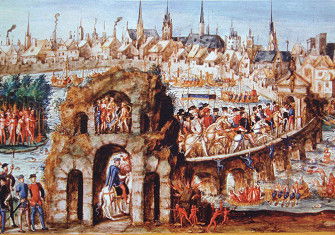The Emperor of Brazil: An Experiment in Liberal Monarchy
For 80 years the Braganza dynasty guided the destiny of Brazil. How did Dom Pedro I and his successor come to reign in a continent of republicans?

The tiny company of American monarchs have, for the most part, been figures of melodrama and pathos, ruling briefly and departing in violence. Maximilian and Carlotta; Christophe, the megalomaniac Emperor of Haiti; Augustin of Mexico, proclaimed by a mob in 1822 and shot two years later in an obscure town near the Gulf Coast.
Julian, Emperor of the Huasteca, ruling over the mountain Indians above Tampico in the days of disorder that followed Hidalgo’s insurrection in 1810 and eventually slaughtered in the jungle by the Spanish soldiers—they form a group of exotic figures beside whose tales of high tragedy the long history of the Brazilian Empire seems prosaic and pedestrian indeed.
Yet it was the very duration of this monarchy—from the day in 1822 when Prince Pedro flourished his sword by the brook of Ypiranga and cried, “Independence or death! We are separated from Portugal!” to the dawn in 1889 when his son sailed away after a revolution in which there was only one casualty (and that not fatal)—that made it more remarkable, in a continent dedicated primarily to republicanism, than the reigns that ended in rapid tragedy.







